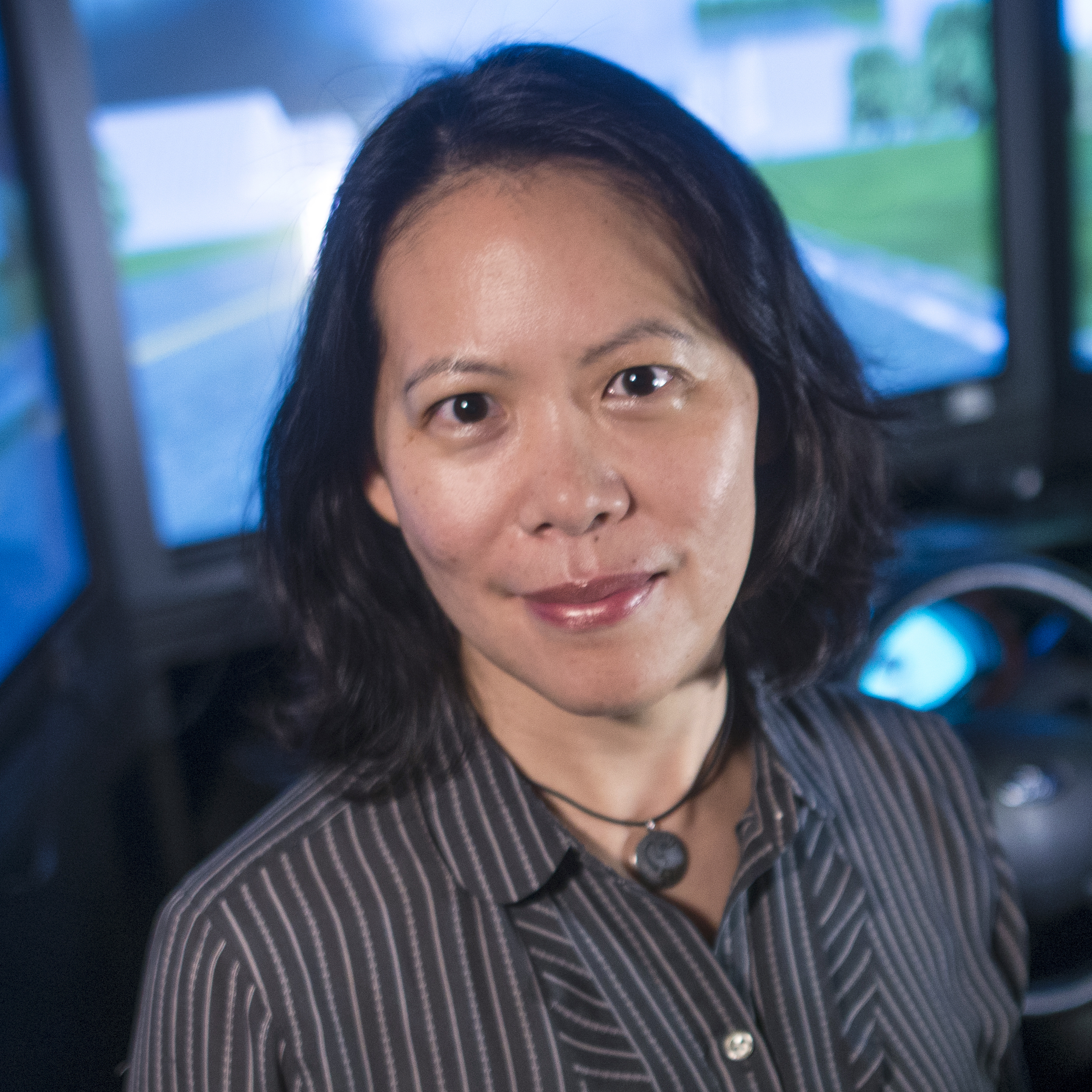
Yi-Ching Lee, PhD
Education
PhD, Industrial Engineering, University of Iowa
Research Focus
My primary research interests are: 1) driver behavior, attention, and emotion regulation, 2) diagnostic driving, 3) driving automation systems, and 4) social interactions in driving.
Current Projects
■ Driver Vigilance Framework for Level 2 and Level 3 Driving Automation Systems – In this project, we aim to develop theoretical framework for evaluating vigilance in the context of driving automation. We will also design and conduct empirical studies for comparing driver vigilance and behaviors under level 2 and level 3 automation using a high-fidelity driving simulator.
■ Diagnostic Driving: Real time Driver Condition Detection Through Analysis of Driving Behavior – In this project, we focus on measuring driver behaviors from teen and young individuals diagnosed with Attention-Deficit/Hyperactivity Disorder. Specifically, we aim to compare their behaviors before and after taking stimulant medication in simulated and real-world driving environments and develop behavioral models to predict onset of medication non-adherence.
■ New Framework for Driving Automation Systems: Taking the Perspectives of Family and Mobility – In this project, we aim to evaluate existing conceptual models of user acceptance for driving automation systems with the intent of adding a new construct – family perspective – to the model. We plan to review and compare the literature and conduct empirical validation for this additional construct.
■ Communication Solutions for Vehicle-to-Pedestrian and Vehicle-to-Infrastructure Applications – In this project, we focus on quantifying the effect of visual, auditory, tactile, olfactory, and gustatory interfaces on the delivery of time critical information from vehicles to other road users in a smart infrastructure context. We plan to empirically compare user understanding of the information coming from the five senses and computationally model the efficiency of information delivery.
Select Publications
David King Hall | 10428 Rivanna River Way, Fairfax, VA 22030
